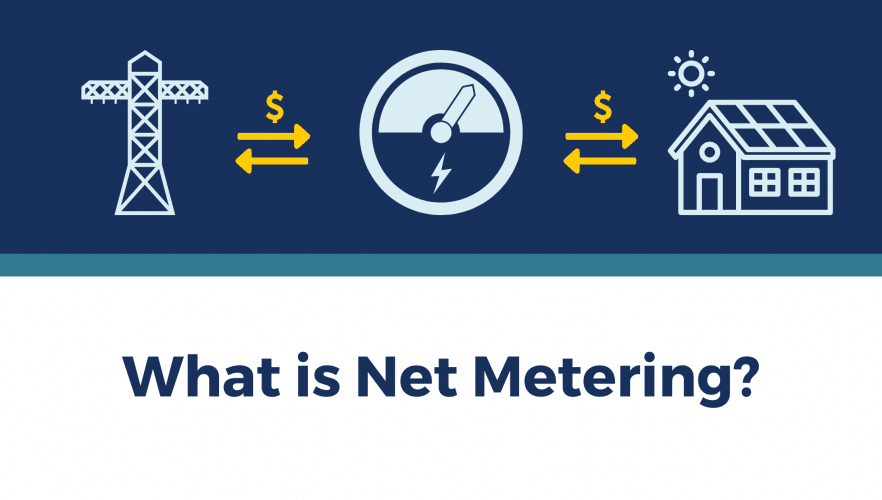
What is Net Metering?
As more business and homeowners experience the benefits of solar, shifting federal and local policies now encourage renewable energy generation. A growing number of states and localities offer incentives (as seen in federal tax credits, for example) to investors in clean energy systems. Though policy can vary from state to state, many choose net metering (or net energy metering, NEM) as a simple, yet effective incentive.
What is net metering?
Modern solar panel systems reach such a high level of efficiency that they frequently produce more energy than can be immediately consumed by a home. Net metering allows customers to exchange excess energy for credits to purchase grid energy at a later date. So, at times when solar panels are not generating sufficient power (when the sun is down), customers can use these credits towards energy consumed from the grid.
In essence, net metering exists as a way to ensure a customer is compensated for all the energy that their solar system produces, regardless of timing, so that none goes to waste. Depending on the size of the system, a home could theoretically produce enough energy during daylight hours to offset the majority of its total energy usage with net metering.
This offers value to a solar customer by:
- Accounting for variation in the timing of solar energy production and consumption
- Reducing energy bills substantially
- Providing the grid with clean energy, lowering local emissions
Though types of net metering can vary slightly depending on the state or utility company, some form of net metering exists in nearly every state. Details of local incentive programs can be found here.
How does it work?
Peak hours of solar energy generation occur midday when the sun shines at its brightest. Typically, residential energy consumption decreases around this time—as many customers are working and consuming little energy. Since peak hours of solar production don’t coincide with peak residential consumption, much of this energy would go to waste if not for net metering.
Rather, net metering allows for this excess energy generated during the daytime to be fed back to the grid. Your meter will actually run in reverse when this happens, so that your local utility company can track how much “net” energy you have generated vs consumed.
One can interpret metering as an indirect form of energy storage. Similar in its benefit to backup batteries, your system will “store” excess energy by feeding it back to the grid. At a later time, when your system isn’t generating enough to power your home, your home will use this credited energy instead of purchasing more from the grid.
How does net metering offer savings?
Through net metering, home and business owners can save thousands over the lifetime of a solar panel system. Net metering ensures that no energy generated by your system goes to waste.
Curious to learn more about net metering in your area? Contact us for a free consultation.


